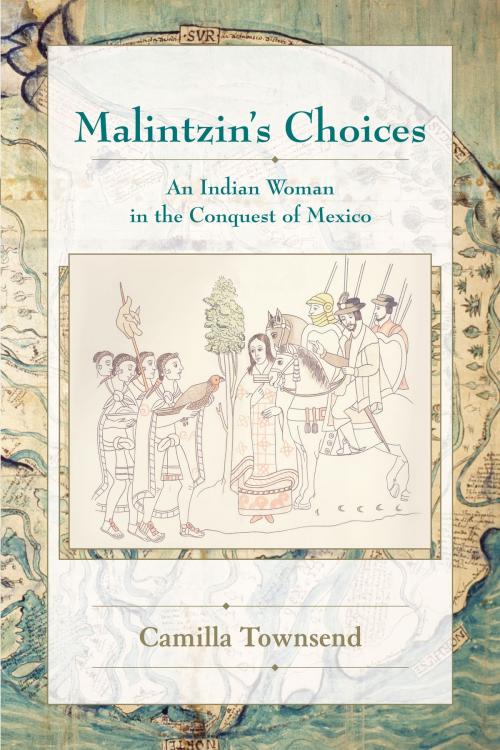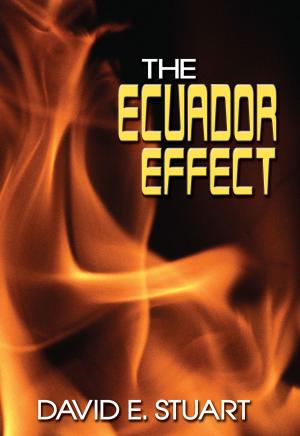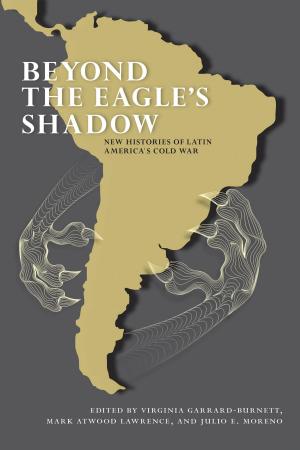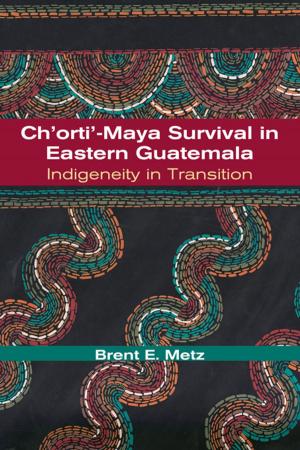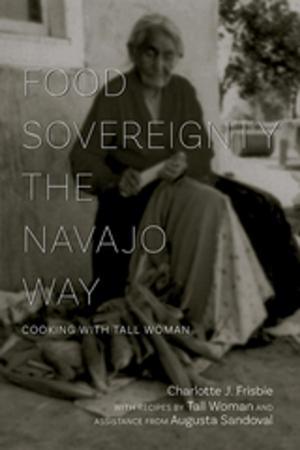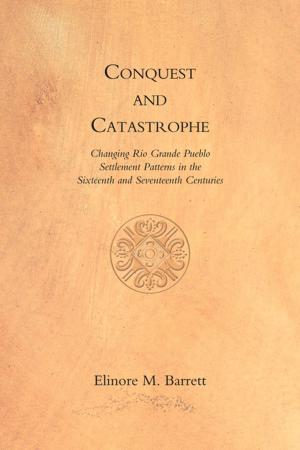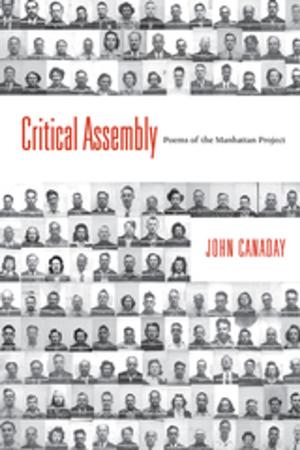Malintzin's Choices
An Indian Woman in the Conquest of Mexico
Nonfiction, History, Americas, Latin America| Author: | Camilla Townsend | ISBN: | 9780826334060 |
| Publisher: | University of New Mexico Press | Publication: | September 1, 2006 |
| Imprint: | University of New Mexico Press | Language: | English |
| Author: | Camilla Townsend |
| ISBN: | 9780826334060 |
| Publisher: | University of New Mexico Press |
| Publication: | September 1, 2006 |
| Imprint: | University of New Mexico Press |
| Language: | English |
Malintzin was the indigenous woman who translated for Hernando Cortés in his dealings with the Aztec emperor Moctezuma in the days of 1519 to 1521. "Malintzin," at least, was what the Indians called her. The Spanish called her doña Marina, and she has become known to posterity as La Malinche. As Malinche, she has long been regarded as a traitor to her people, a dangerously sexy, scheming woman who gave Cortés whatever he wanted out of her own self-interest.
The life of the real woman, however, was much more complicated. She was sold into slavery as a child, and eventually given away to the Spanish as a concubine and cook. If she managed to make something more out of her life--and she did--it is difficult to say at what point she did wrong. In getting to know the trials and intricacies with which Malintzin's life was laced, we gain new respect for her steely courage, as well as for the bravery and quick thinking demonstrated by many other Native Americans in the earliest period of contact with Europeans.
In this study of Malintzin's life, Camilla Townsend rejects all the previous myths and tries to restore dignity to the profoundly human men and women who lived and died in those days. Drawing on Spanish and Aztec language sources, she breathes new life into an old tale, and offers insights into the major issues of conquest and colonization, including technology and violence, resistance and accommodation, gender and power.
"Beautifully written, deeply researched, and with an innovative focus, Malintzin's Choices will become a classic. Townsend deftly walks the fine line between historical documentation and informed speculation to rewrite the history of the conquest of Mexico. Weaving indigenous and Spanish sources the author not only provides contextual depth to understanding Malintzin's critical role as translator and cultural interpreter for Cortes, but in the process she illuminates the broader panorama of choices experienced by both indigenous and Spanish participants. This work not only provides revisionst grist for experts, but will become a required and a popular reading for undergraduates, whether in colonial surveys or in specialty courses."--Ann Twinam, professor of history, University of Texas, Austin
"In this beautifully written and engrossing story of a controversial figure in Mexican history, Camilla Townsend does a wonderful job unraveling the multiple myths about Malintzin (Marina, Malinche), and placing her within her culture, her choices, and the tumultuous times in which she lived. The result is a portrayal of Malintzin as a complex human being forced by circumstances to confront change and adaptation in order to survive."--Susan M. Socolow, Emory University
"Camilla Townsend's text reads beautifully. She has a capacity to express complex ideas in simple, elegant language. This book consists of an interweaving of many strands of analysis. Malinche appears as symbol, as a historical conundrum, and as an actor in one of history's most fascinating dramas. The reader follows Malinche but all the while learns about the Nahuas' world. It is a book that will be extremely valuable for classrooms but also makes an important contribution to the academic literature."--Sonya Lipsett-Rivera, professor of history, Carleton University
Malintzin was the indigenous woman who translated for Hernando Cortés in his dealings with the Aztec emperor Moctezuma in the days of 1519 to 1521. "Malintzin," at least, was what the Indians called her. The Spanish called her doña Marina, and she has become known to posterity as La Malinche. As Malinche, she has long been regarded as a traitor to her people, a dangerously sexy, scheming woman who gave Cortés whatever he wanted out of her own self-interest.
The life of the real woman, however, was much more complicated. She was sold into slavery as a child, and eventually given away to the Spanish as a concubine and cook. If she managed to make something more out of her life--and she did--it is difficult to say at what point she did wrong. In getting to know the trials and intricacies with which Malintzin's life was laced, we gain new respect for her steely courage, as well as for the bravery and quick thinking demonstrated by many other Native Americans in the earliest period of contact with Europeans.
In this study of Malintzin's life, Camilla Townsend rejects all the previous myths and tries to restore dignity to the profoundly human men and women who lived and died in those days. Drawing on Spanish and Aztec language sources, she breathes new life into an old tale, and offers insights into the major issues of conquest and colonization, including technology and violence, resistance and accommodation, gender and power.
"Beautifully written, deeply researched, and with an innovative focus, Malintzin's Choices will become a classic. Townsend deftly walks the fine line between historical documentation and informed speculation to rewrite the history of the conquest of Mexico. Weaving indigenous and Spanish sources the author not only provides contextual depth to understanding Malintzin's critical role as translator and cultural interpreter for Cortes, but in the process she illuminates the broader panorama of choices experienced by both indigenous and Spanish participants. This work not only provides revisionst grist for experts, but will become a required and a popular reading for undergraduates, whether in colonial surveys or in specialty courses."--Ann Twinam, professor of history, University of Texas, Austin
"In this beautifully written and engrossing story of a controversial figure in Mexican history, Camilla Townsend does a wonderful job unraveling the multiple myths about Malintzin (Marina, Malinche), and placing her within her culture, her choices, and the tumultuous times in which she lived. The result is a portrayal of Malintzin as a complex human being forced by circumstances to confront change and adaptation in order to survive."--Susan M. Socolow, Emory University
"Camilla Townsend's text reads beautifully. She has a capacity to express complex ideas in simple, elegant language. This book consists of an interweaving of many strands of analysis. Malinche appears as symbol, as a historical conundrum, and as an actor in one of history's most fascinating dramas. The reader follows Malinche but all the while learns about the Nahuas' world. It is a book that will be extremely valuable for classrooms but also makes an important contribution to the academic literature."--Sonya Lipsett-Rivera, professor of history, Carleton University
